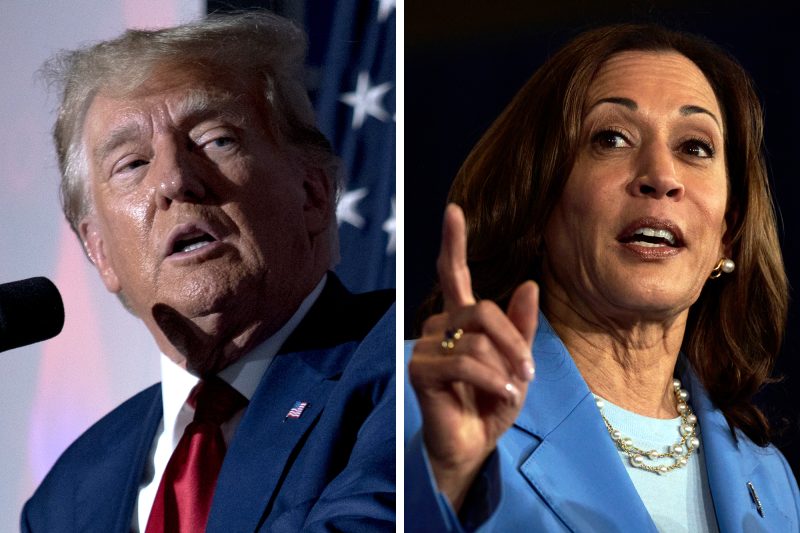
Trump’s Bold Outreach to Black Voters Faces Unexpected Twist With Harris
In the wake of the 2020 U.S. Presidential election, former President Donald Trump continues his efforts to expand his support among Black voters. While Trump has made strides in engaging with this demographic, recent developments present new challenges to his outreach efforts. Specifically, the emergence of Vice President Kamala Harris as a prominent figure in American politics poses a significant obstacle for Trump’s engagement with Black voters.
Trump’s focus on appealing to Black voters has been a notable part of his strategy, particularly in the aftermath of the 2020 election where he made gains among this demographic compared to previous elections. By highlighting his administration’s criminal justice reform initiatives and economic policies that purportedly benefitted African Americans, Trump has sought to position himself as an ally to the Black community.
However, the entry of Kamala Harris onto the national stage has complicated Trump’s approach to Black voter engagement. As the first Black and South Asian woman to hold the office of Vice President, Harris symbolizes progress and representation for many Black Americans. Her historic achievement has generated significant enthusiasm and support within the Black community, presenting a formidable rival in terms of political influence.
Moreover, Harris’s tenure as Vice President under the Biden administration has allowed her to champion policies and initiatives that resonate with Black voters, such as efforts to address systemic racism and promote social justice. Her advocacy for voting rights, criminal justice reform, and economic equity has solidified her standing as a vocal advocate for issues that are crucial to the Black community.
As a result, Trump faces a new challenge in his efforts to connect with Black voters in the shadow of Harris’s rising prominence. While Trump’s messaging on economic prosperity and law-and-order appeals to some segments of the Black electorate, Harris’s representation and advocacy may hold greater sway for many others.
In response to this dynamic landscape, Trump has ramped up his outreach efforts to Black voters, seeking to counter Harris’s influence with his own brand of populism and political messaging. By emphasizing themes of patriotism, law and order, and economic opportunity, Trump aims to present a contrasting vision to Harris’s platform and appeal to different priorities within the Black community.
Ultimately, the competition for Black voter support between Trump and Harris underscores the complexity of political engagement within this demographic. While Trump has made inroads with some Black voters through his messaging and policies, Harris’s emergence as a prominent leader presents a formidable challenge to his outreach efforts. As the political landscape continues to evolve, both figures will undoubtedly play a significant role in shaping the future of Black voter engagement in American politics.
